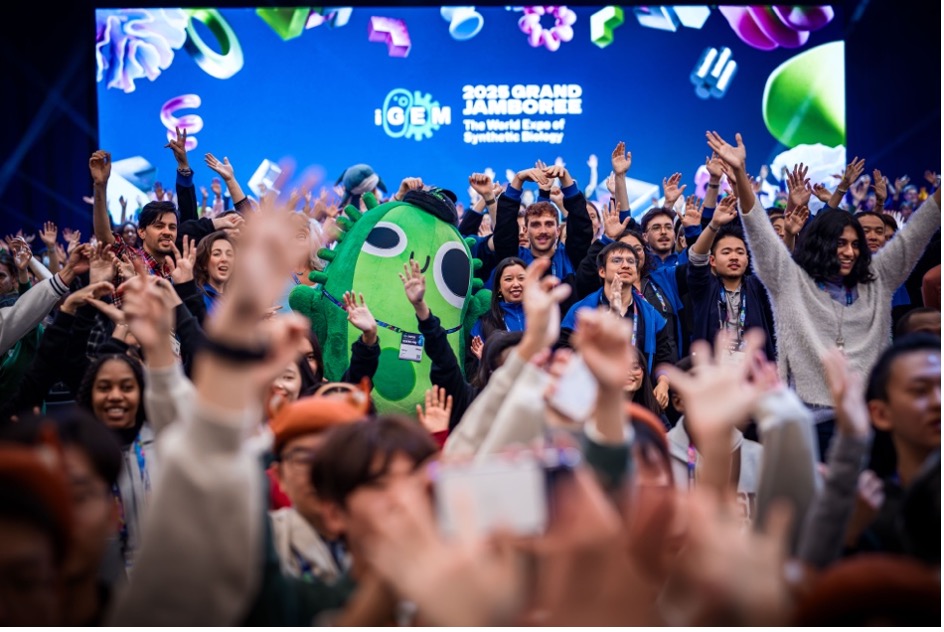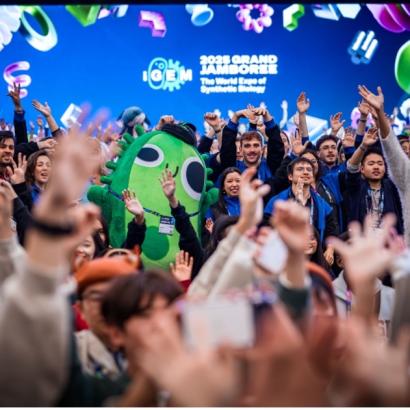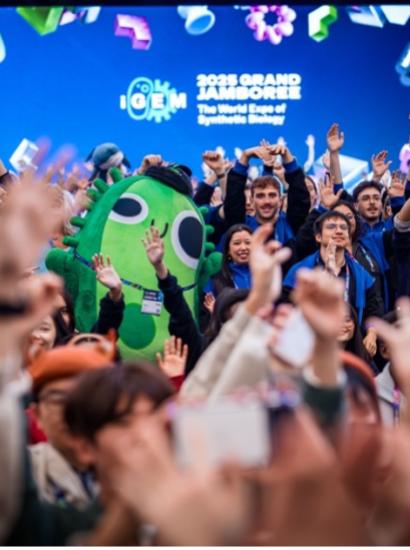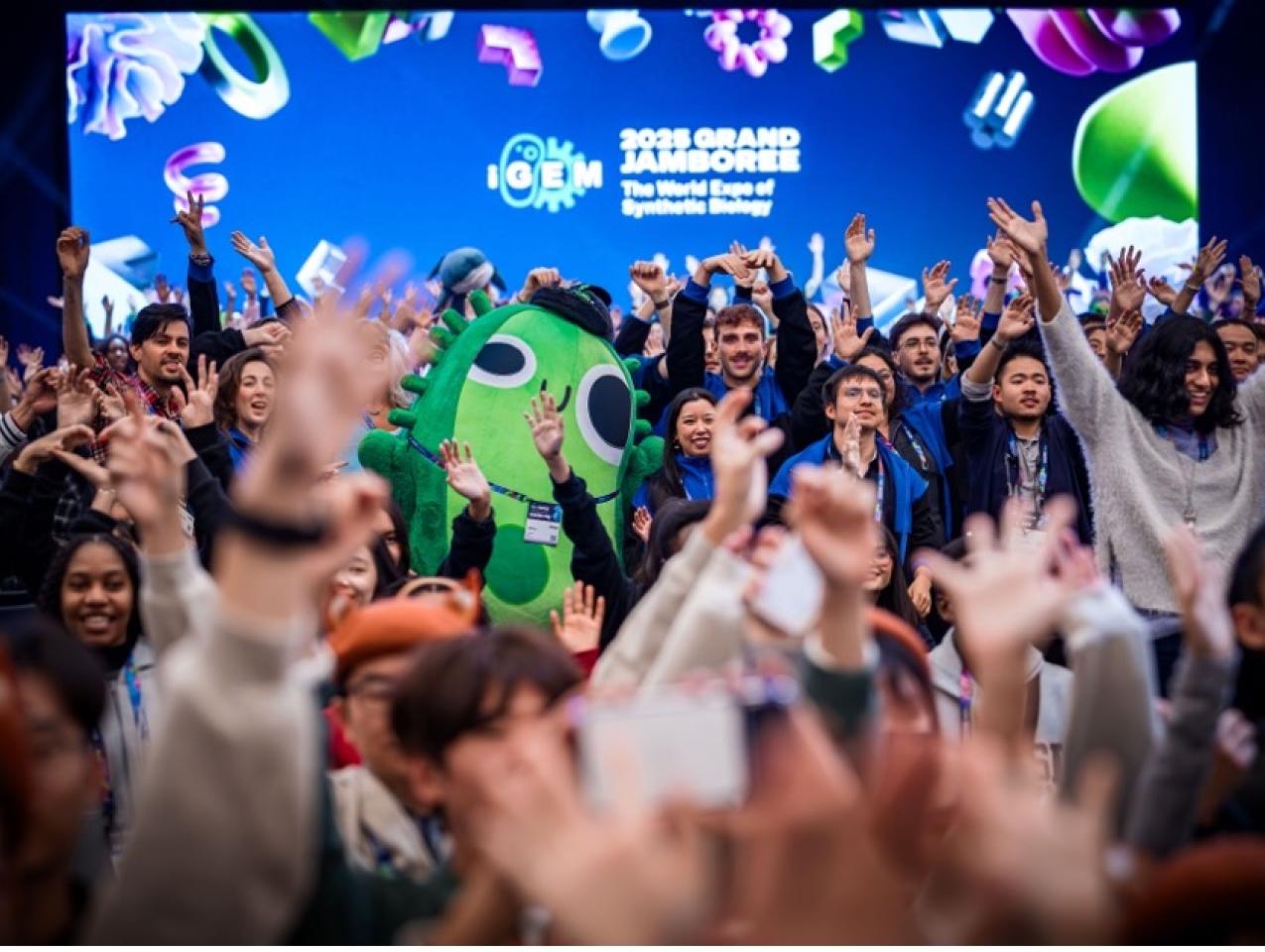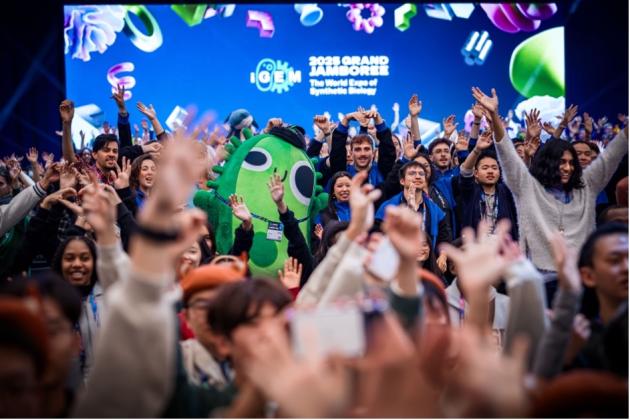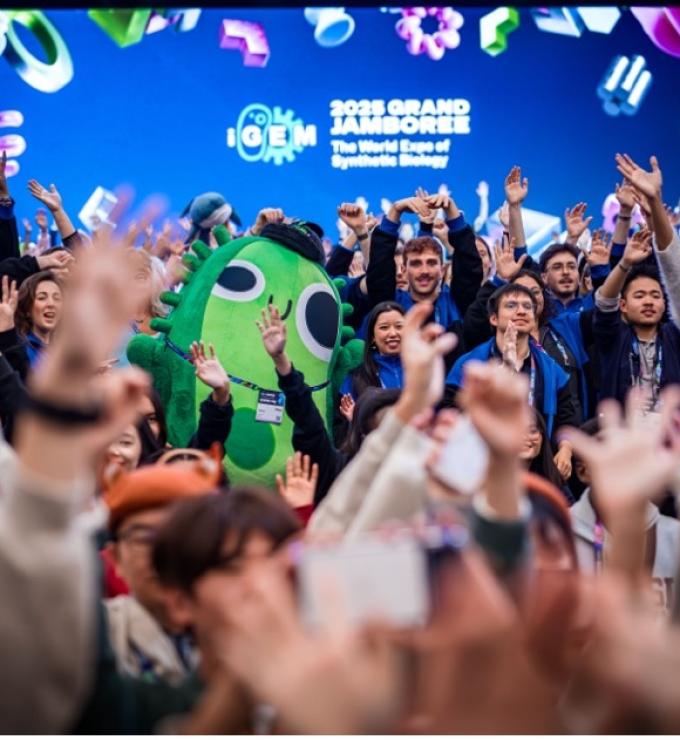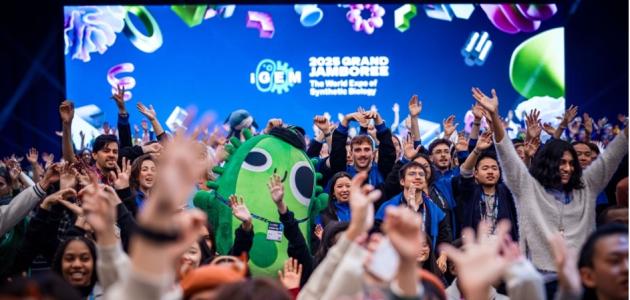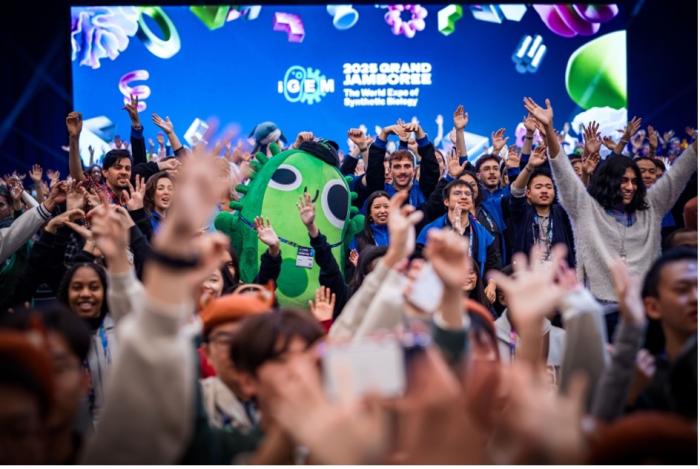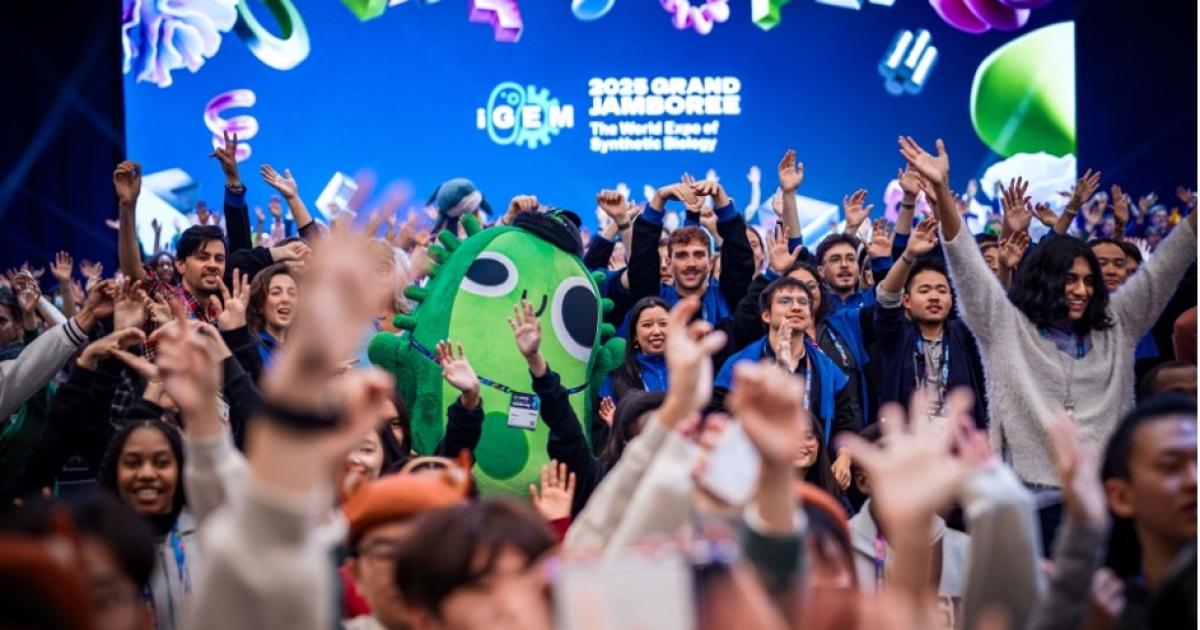Hoover Institution (Stanford, CA) — The Hoover Institution’s Bio-Strategies and Leadership (BSL) team participated in the 2025 International Genetically Engineered Machines (iGEM) Grand Jamboree in Paris, the world’s largest synthetic biology event. The iGEM competition itself brought together 4,600 students from 400 teams across nearly 50 countries to share their efforts to leverage synthetic biology to enable local people to solve local and global problems.
“The energy of the students at the 2025 iGEM was not only palpable, it was magnetic,” Hoover Visiting Fellow Josh Hodges said. “Display booths ranged from soybean protection to cutting-edge, bio-grown materials that could be used for 3D-printing objects that are durable and self-healing over time, if damaged.” He added, “It felt like I was witnessing a glimpse into the future, and it was clear that American policymakers need to exponentially increase efforts to continue to be a part of that future.”
The BSL delegation was led by Drew Endy, one of the 2003 cofounders of iGEM, who is also Hoover Science and Senior Fellow and Martin Family University Faculty Fellow in Undergraduate Education (bioengineering) at Stanford University. The delegation, in addition to Hodges, included Hoover Distinguished Visiting Fellow Mike Kuiken and Hoover Institution and Stanford bioengineering staff.
Hoover’s BSL hosted an iGEM booth, from which the BSL team engaged with hundreds of students, journalists, entrepreneurs, and academics. Members of the delegation introduced key insights from BSL’s new Biosecurity Really report, discussed biotechnology policy issues, and highlighted opportunities for students and researchers to collaborate with Hoover on advancing biology as a strategic domain.
Within the Jamboree itself, Endy also cohosted the SB8.0 Conference, a one-day event showcasing major global developments in synthetic biology. A subsequent leadership session convened senior researchers from around the world for an in-depth discussion on improving research workflows, advancing biosecurity practices, and preparing for the opportunities and challenges biotechnology will present over the next quarter century.
The Hoover team also met with leaders from NATO and other European policymakers to discuss urgent opportunities to strengthen biotechnology and biosecurity collaboration across the region. In a private keynote address to dozens of NATO affiliates, Endy outlined strategic opportunities enabled by recent advances in biotechnology and highlighted practical steps the alliance can take to expand biomanufacturing capacity for defense.
“Biotechnology is and will continue to redefine manufacturing, security, and economic competitiveness,” Endy said. “The iGEM Jamboree and associated events make it totally clear that the next generation of innovators are not waiting to make increasingly biotic futures real soon enough to matter. For example, I was amazed to see a next-generation desktop DNA printer leveraging thin-film transistor technology—what is used in cell phone displays—to control production of 65,000 synthetic DNA fragments at once. All of us, not just those working in biotechnology, have a responsibility now to shape which futures come true.”
BSL’s presence at iGEM reflects Hoover’s commitment to strengthening global biosecurity, cultivating responsible biotechnology leadership, and supporting the next generation of innovators.
For more information about BSL, visit victory.stanford.edu or email Sarah Moront (smoront@stanford.edu).
For more information about Hoover’s Technology Policy Accelerator and all matters involving critical and emerging technologies, visit tpa.stanford.edu.







